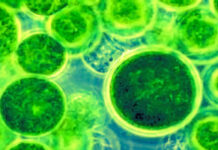Ahuahutle, the ‘Mexican caviar’ made from insects, is a traditional Aztec food that is in danger of disappearing. In order to protect this and other pre-industrial and pre-Hispanic foods, at the FAO World Food Forum–15-16.10.22–several indigenous groups spoke out on the importance of creating platforms that make people understand the traditional foods and food systems of indigenous groups around the world.
Ahuahutle, the ‘Mexican caviar’ cherished by natives
Indigenous people claim to be protectors of the earth’s resources. They have taken ingredients in their environment to create their traditional food systems, always with respect and gratitude to nature and with recycling practices that we now call the circular economy.
So much knowledge about sustainable food traditions needs to be preserved and passed on to young people. Instead, it is in danger of becoming extinct, as is happening in the Central Valley of Mexico, with the cultivation of the eggs of an aquatic bug (1), called ‘ahuahutle‘ in the ancient Aztec Nahuatl language, meaning ‘water amaranth’ (amaranth is a plant native to Mexico similar to quinoa that is a key part of traditional gastronomy).
An Aztec legacy
The few people who try to keep this culinary tradition alive raise ‘Mexican caviar’ in the few remaining reservoirs of Lake Texcoco, where 500 years ago Tenochtitlán, one of the most prosperous cities in Mesoamerica, was located and where the Aztecs, a people with a great entomological tradition, lived (2).
In the rainy season, between June and September, farmers put bunches of grass in the water where the water bug lays its eggs.
After 12 to 14 days, harvesting begins. With the help of salvaged tools-pieces of wood, nets, tires, etc. – farmers pull the grass out of the water and put it to dry in the sun for 4-7 days. After drying is finished, they remove the eggs. With rudimentary techniques they obtain a food that once served as an important ingredient to feed an entire city.
A tradition overwhelmed by ‘progress’
Before 1492 there were no large farmed mammals on the American continent, and one of the main sources of protein was insects. Over time, traditional diets have been lost or modified as a result of the interaction between different cultures.
Today the pre-Hispanic culinary tradition is in danger of extinction. The change is the logical consequence of the history of conquest experienced in America. On the other hand, it is unacceptable if replacing food systems based on traditional local ingredients are global food systems based on ultra-processed foods, which have been responsible for public health problems (3), unsustainable diets (4) and food waste for the past 30 years.
One of the main reasons why the traditional diet of many peoples around the world is being lost is that the consumption of these foods, presented as the food of the poor, the ignorant, is discouraged and the consumption of ultra-processed foods is encouraged.
Insects, sustainable development and novel foods
Sustainable Development Goals(SDGs) in food systems can be achieved while respecting people’s food cultures and traditions. Which, in Mexico, are also rooted on the consumption of several hundred species of insects, as noted. (1) And it is useful to integrate these traditions with modern food science and technology to ensure safety and increase where possible the
shelf-life
of products.
The placing of ‘Mexican caviar’ on the European market postulates in any case its authorization as a ‘
novel food
‘, albeit through the simplified procedure provided by reg. EU 2015/2283 for traditional foods from third countries. Our FARE team is available to assist operators who wish to take this path.
Isis Consuelo Sanlucar Chirinos and Dario Dongo
Notes
(1) Dario Dongo. Entomophagy the tradition in Mexico, 530 species of insects at the table. GIFT (Great Italian Food Trade). 5.8.22
(2) Fabiola Sanchez. In Mexico locals try to save traditional Mexican caviar. The Washington Post. 10.10.22
(3) Dario Dongo, Andrea Adelmo Della Penna. Ultraprocessed foods, the worst evil. Appeal of scientists in the British Medical Journal. GIFT (Great Italian Food Trade). 16.8.21
(4) Dario Dongo. Ultraprocessed foods. Carbon footprint and water footprint. The study in Brazil. GIFT (Great Italian Food Trade). 27.02.2022









